Charles E W Bean, Diaries, AWM38 3DRL 606/77/1 - April - May 1917 - Part 2
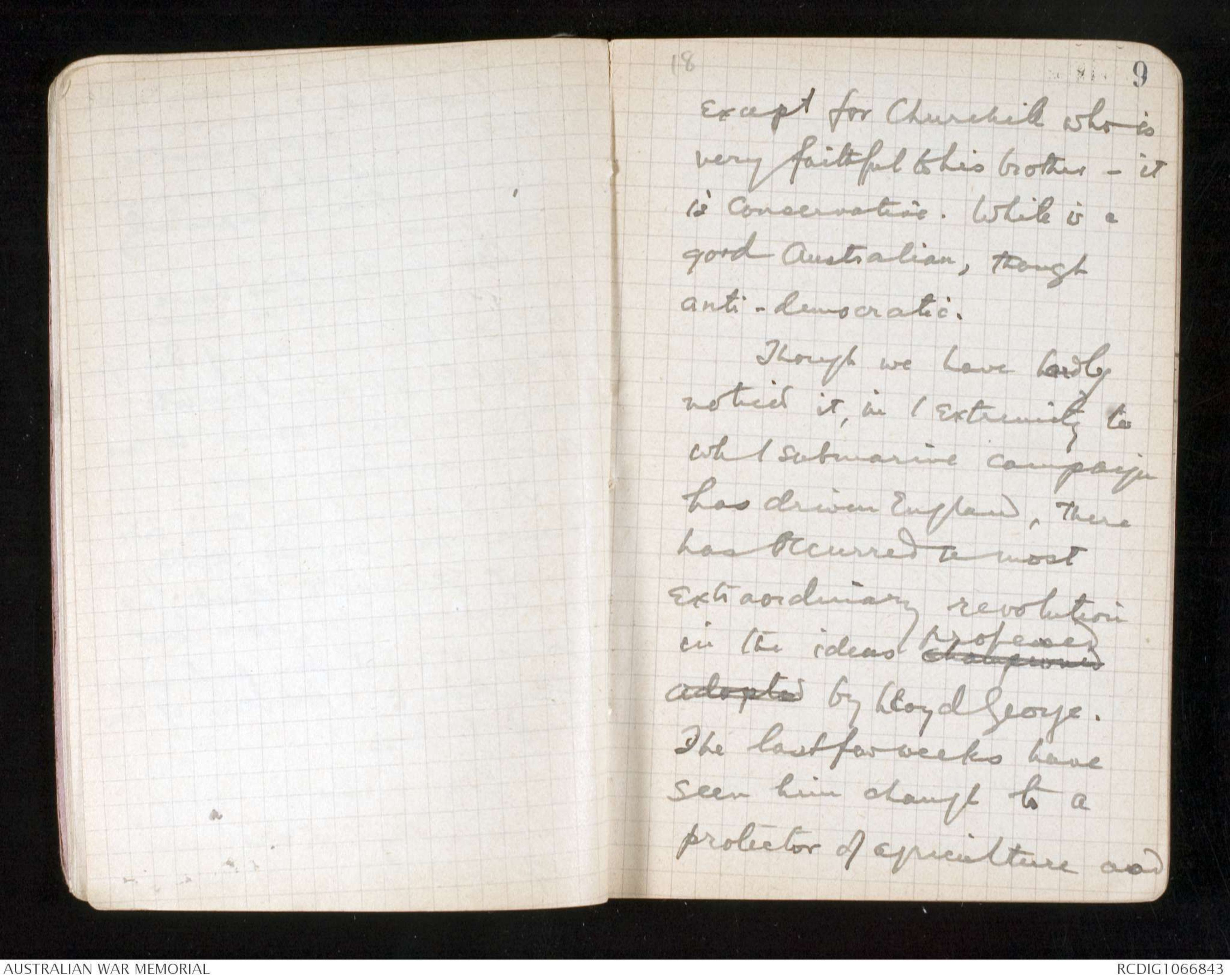
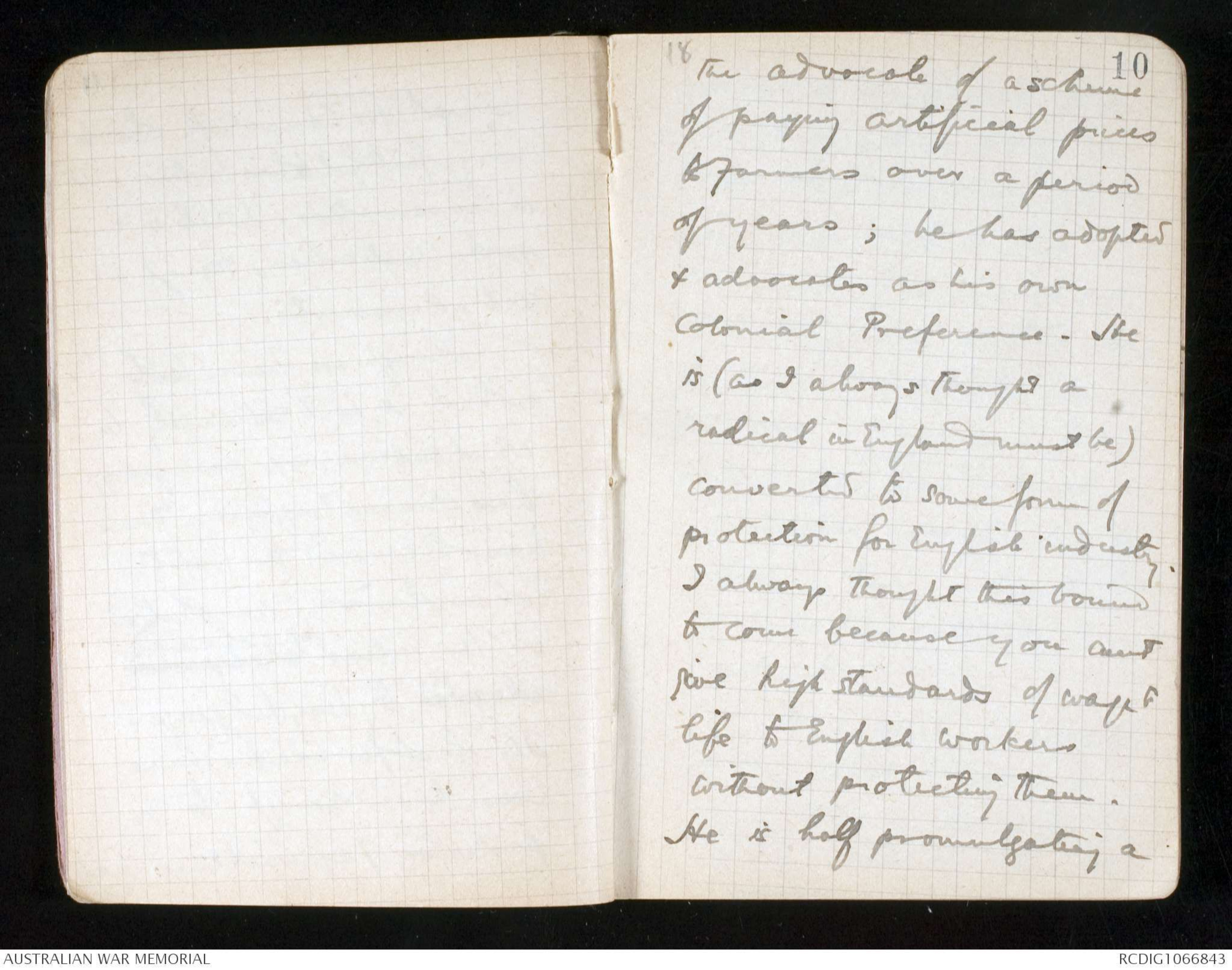
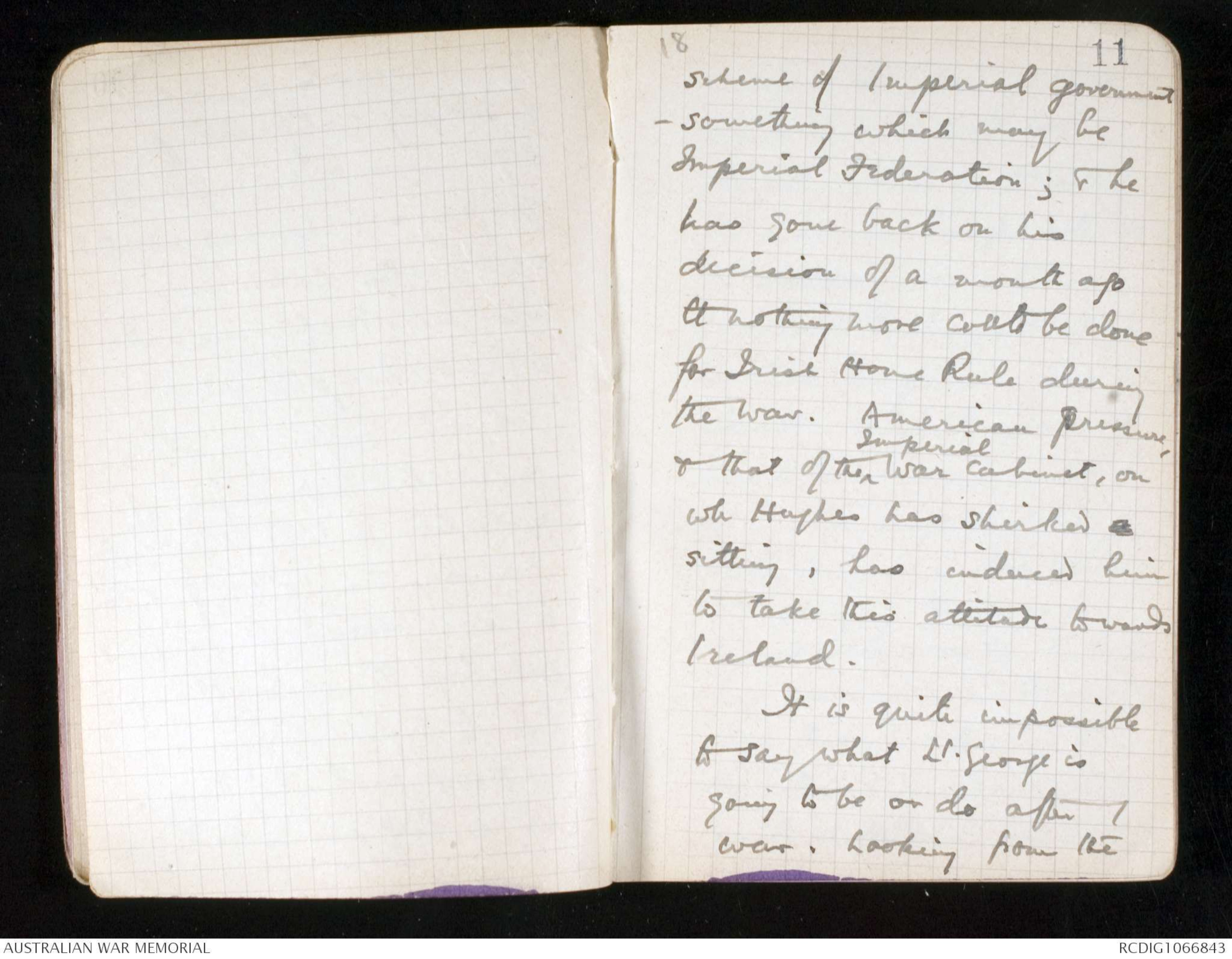
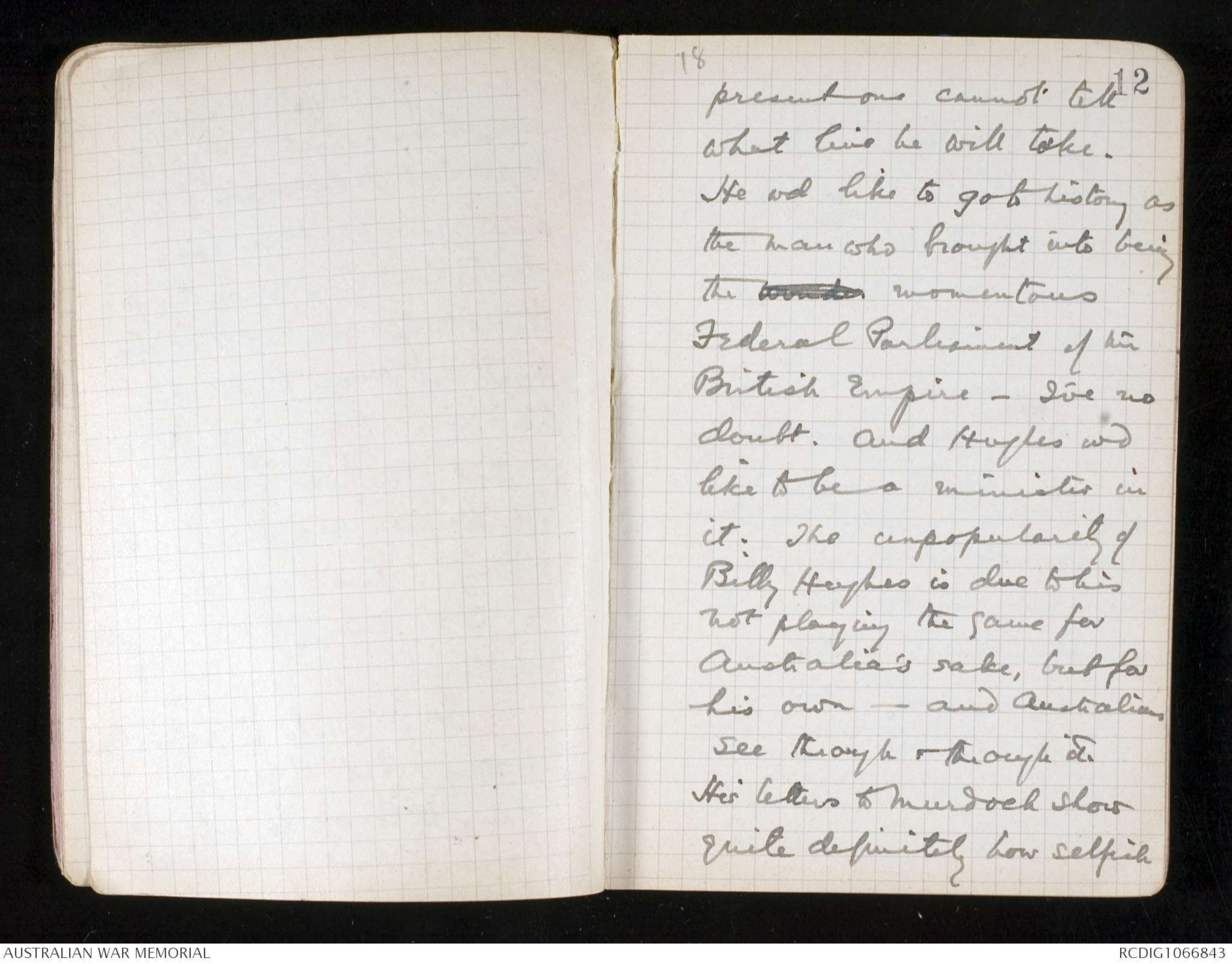
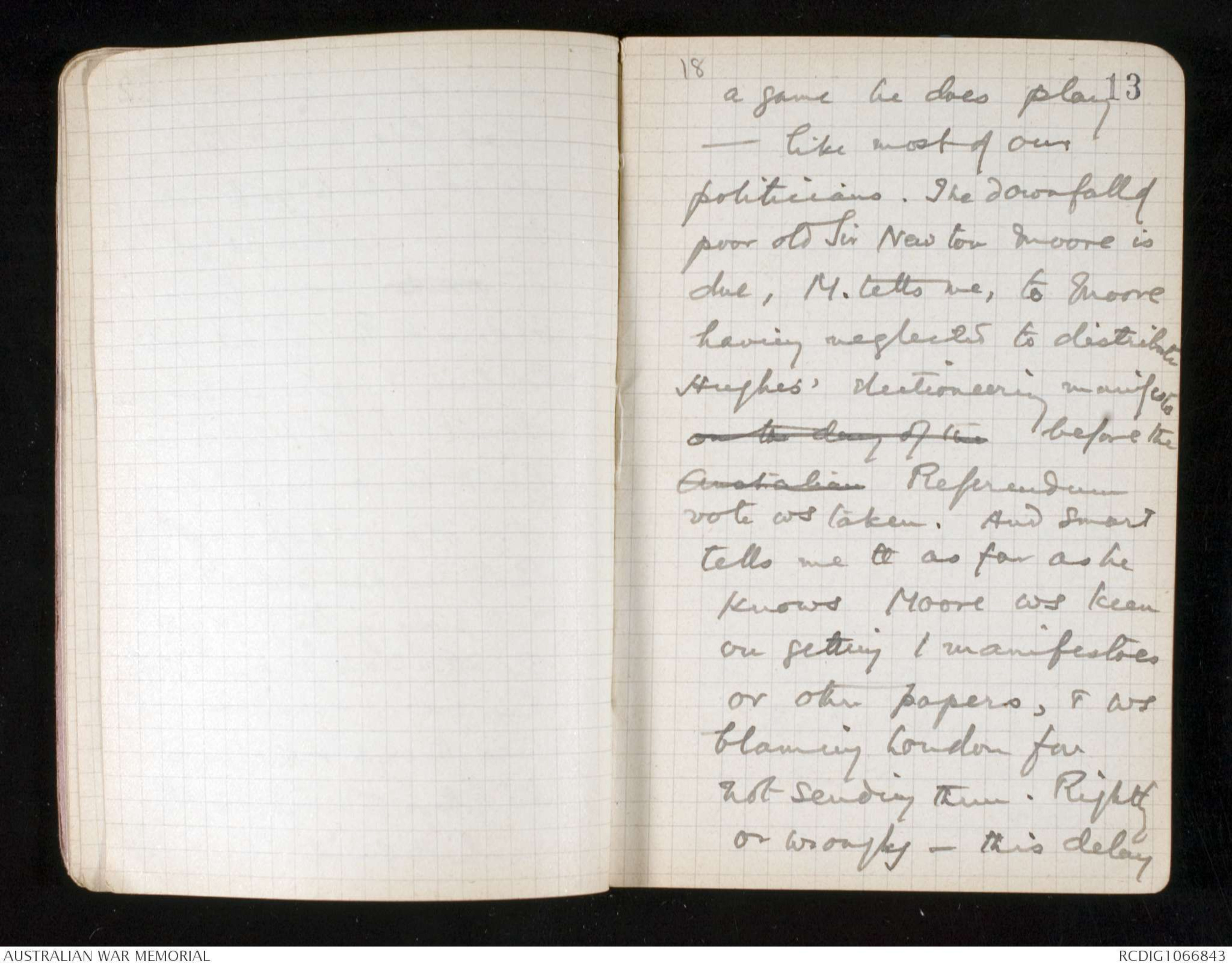
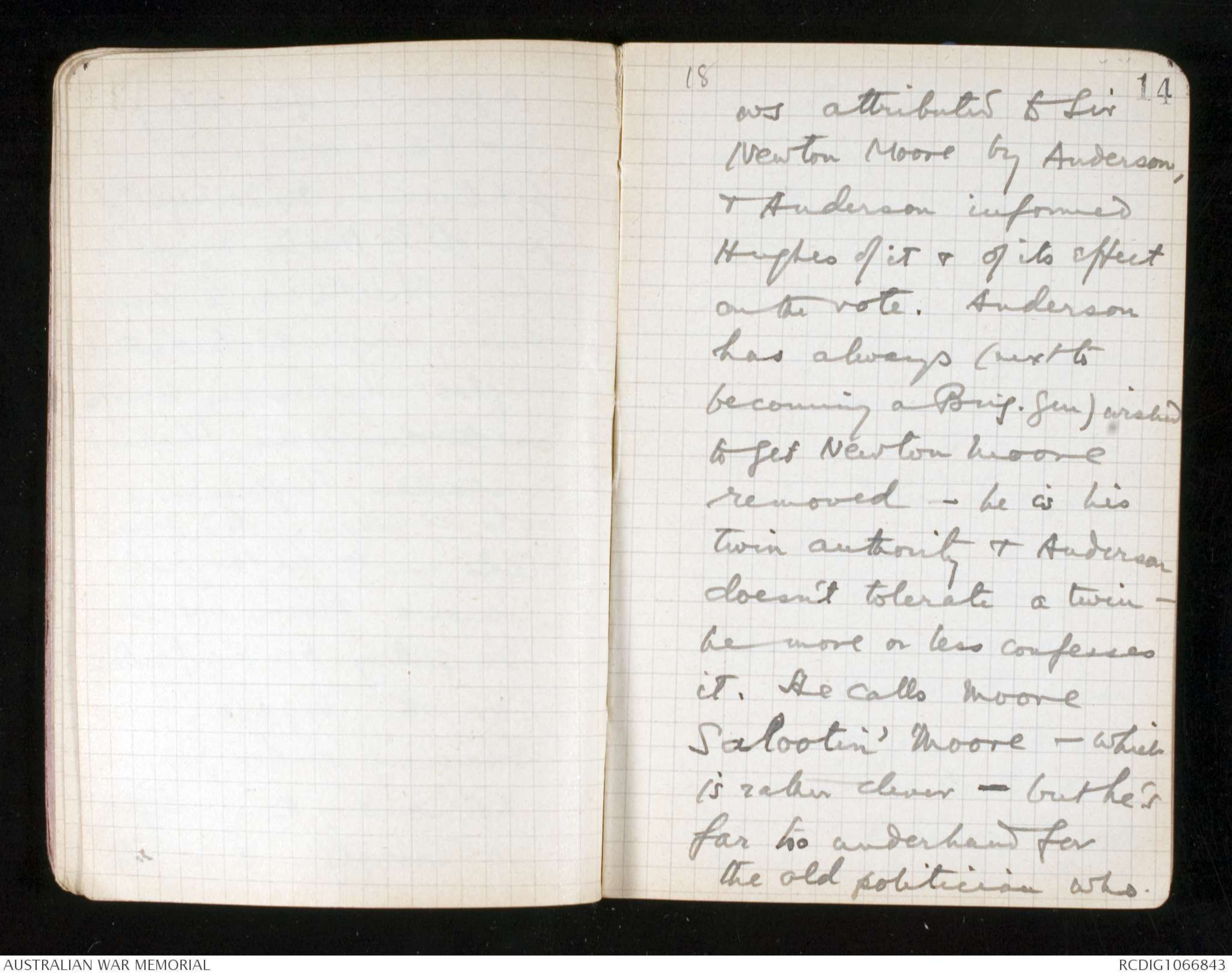
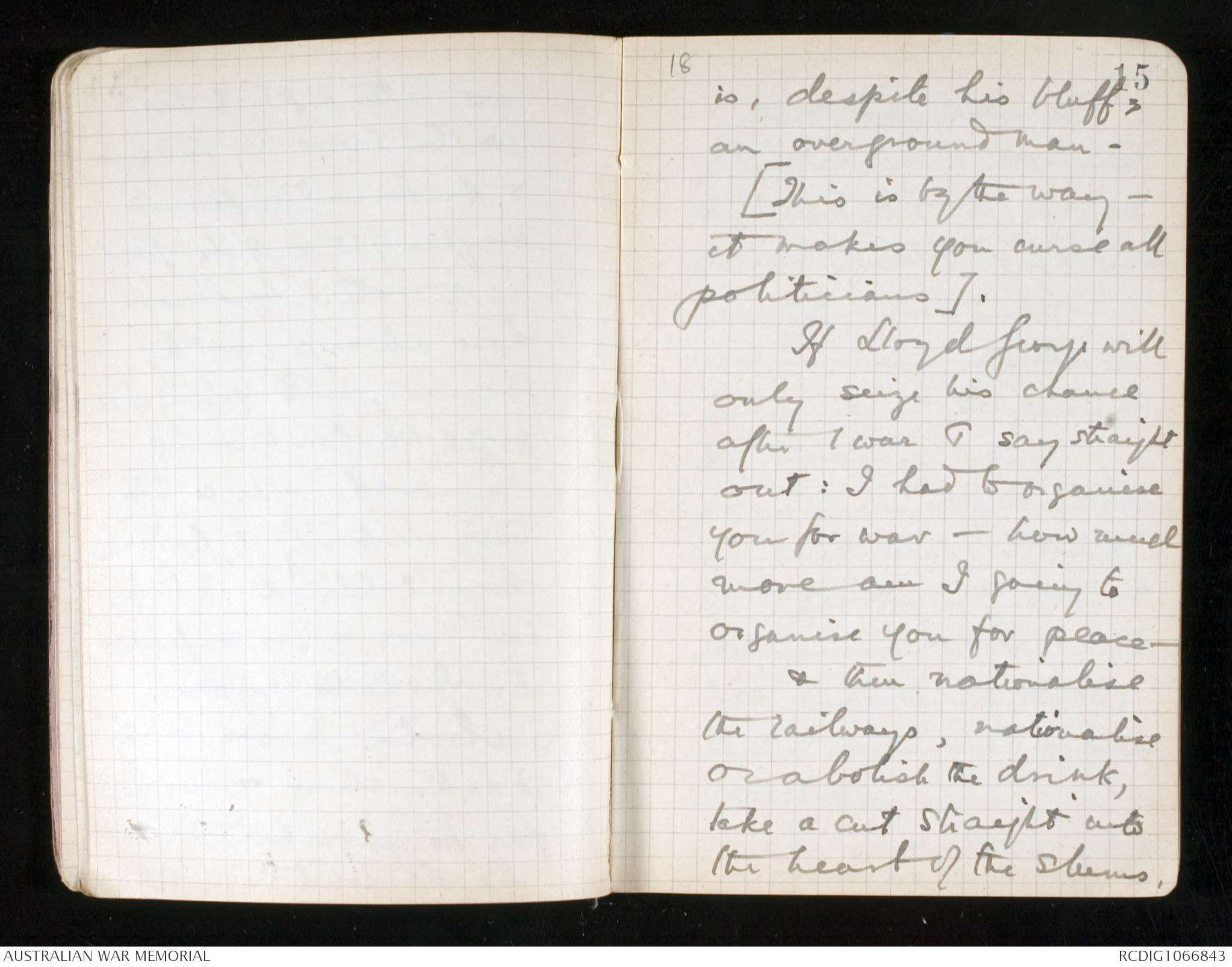
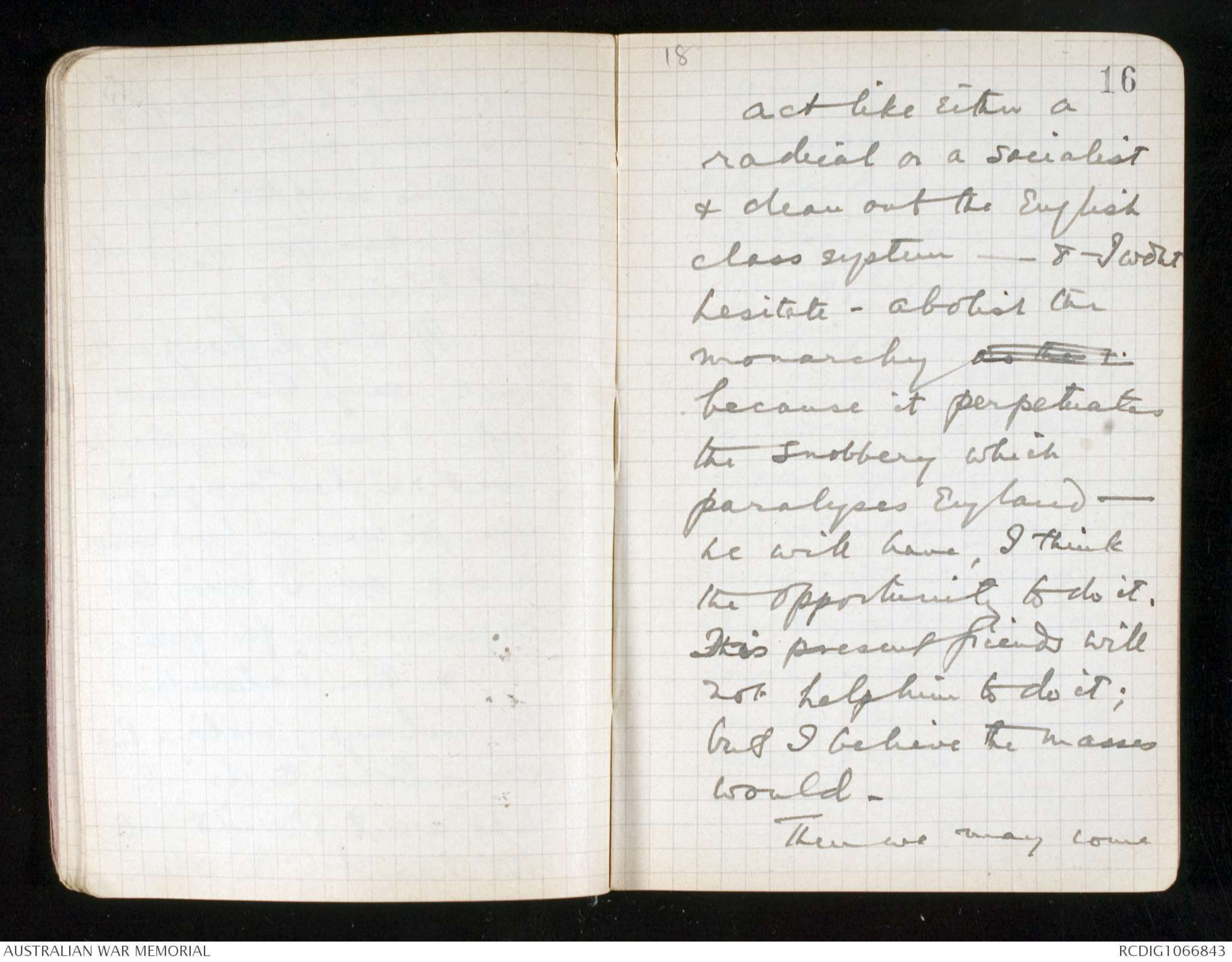
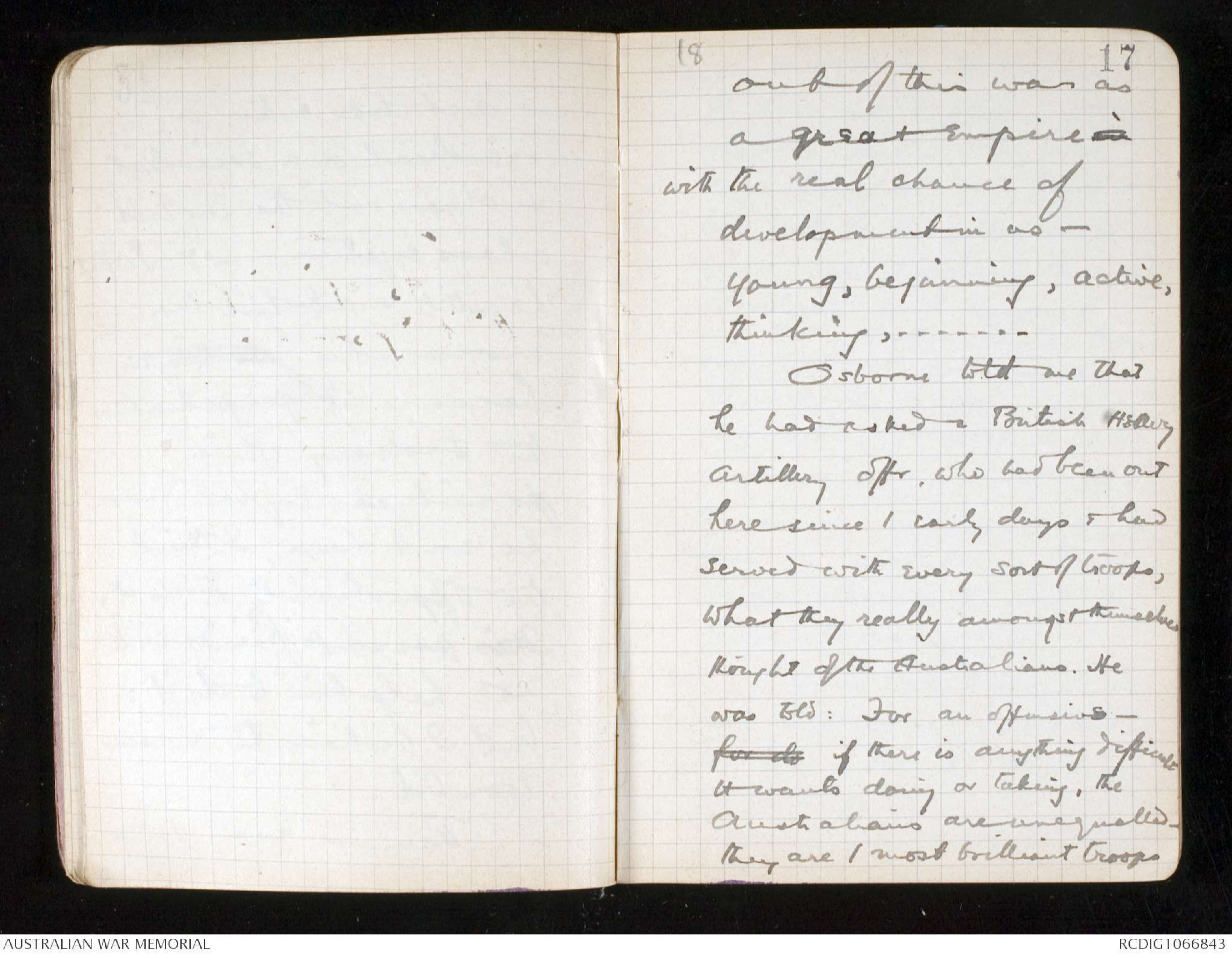
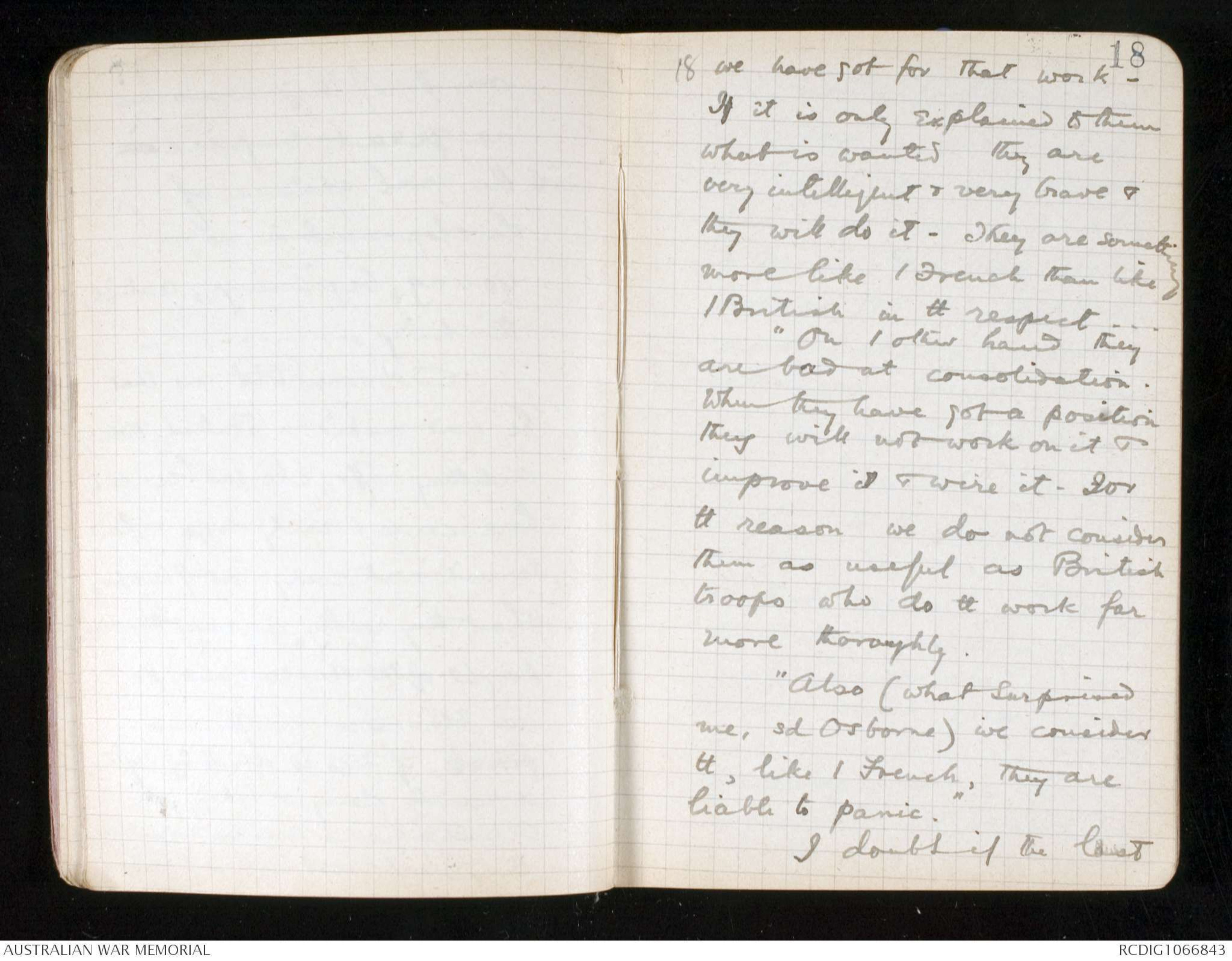
18 9
except for Churchill who is
very faithful to his brother - it
is conservative. White is a
good Australian, though
anti-democratic.
Though we have hardly
noticed it, in / extremity to
wh / submarine campaign
has driven England, there
has occurred a most
extraordinary revolution
in the ideas championed ∧proposedadopted by Lloyd George.
The last few weeks have
seen him change to a
protector of agriculture and
18 10
the advocate of a scheme
of paying artificial prices
to farmers over a period
of years; he has adopted
& advocates as his own
Colonial Preference - He
is (as I always thought a
radical in England must be)
converted to some form of
protection for English industry.
I always thought this bound
to come because you cant
give high standards of wage &
life to English workers
without protecting them.
He is half promulgating a
18 11
scheme of Imperial government
- something which may be
Imperial Federation; & he
has gone back on his
decision of a month ago
tt nothing more could be done
for Irish Home Rule during
the war. American pressure,
& that of the ^Imperial War cabinet, on
wh Hughes has shirked a
sitting, has induced him
to take this attitude towards
Ireland.
It is quite impossible
to say what Ll. George is
going to be or do after /
war. Looking from the
18 12
present one cannot tell
what line he will take.
He wd like to go to history as
the man who brought into being
the wonder momentous
Federal Parliament of the
British Empire - I've no
doubt. And Hughes wd
like to be a minister in
it. The unpopularity of
Billy Hughes is due to his
not playing the game for
Australia's sake, but for
his own - and Australians
see through & through it.
His letters to Murdoch show
quite definitely how selfish
18 13
a game he does play
- like most of our
politicians. The downfall of
poor old Sir Newton Moore is
due, M. tells me, to Moore
having neglected to distribute
Hughes' electioneering manifestoon the day of the before theAustralian Referendum
vote ws taken. And Smart
tells me tt as far as he
knows Moore ws keen
on getting t manifestoes
or other papers, & ws
blaming London for
not sending them. Rightly
or wrongly - this delay
18 14
ws attributed to Sir
Newton Moore by Anderson,
& Anderson informed
Hughes of it & of its effect
on the vote. Anderson
has always (next to
becoming a Brig. Gen) wished
to get Newton Moore
removed - he is his
twin authority & Anderson
doesn't tolerate a twin -
he more or less confesses
it. He calls Moore
Salootin' Moore - which
is rather clever - but he's
far too underhand for
the old politician who
18 15
is, despite his bluff,
an overground man -
[This is by the way -
it makes you curse all
politicians].
If Lloyd George will
only seize his chance
after / war & say straight
out : I had to organise
you for war - how much
more am I going to
organise you for peace -
& then nationalise
the railways, nationalise
or abolish the drink,
take a cut straight into
the heart of the slums,
18 16
act like either a
radical or a socialist
& clean out the English
class system - & - I wdnt
hesitate - abolish the
monarchy as the x
because it perpetuates
the snobbery which
paralyses England -
he will have, I think
the opportunity to do it.
His present friends will
not help him to do it;
but I believe the masses
would -
Then we may come
18 17
out of this war as
a great empire in
with the real chance of
development in us -
young, beginning, active,
thinking, . . . . . . . .
Osborne told me that
he had asked a British Heavy
Artillery offr, who had been out
here since / early days & had
served with every sort of troops,
what they really amongst themselves
thought of the Australians. He
was told: For an offensive -for do if there is anything difficult
tt wants doing or taking, the
Australians are unequalled -
they are / most brilliant troops
18 18
we have got for that work -
If it is only explained to them
what is wanted they are
very intelligent & very brave &
they will do it - They are something
more like / French than like
/ British in tt respect . . .
"On / other hand they
are bad at consolidation.
When they have got a position
they will not work on it &
improve it & wire it - For
tt reason we do not consider
them as useful as British
troops who do tt work far
more thoroughly.
"Also (what surprised
me, sd Osborne) we consider
tt, like / French, they are
liable to panic."
I doubt if the last
 Robyn G
Robyn GThis transcription item is now locked to you for editing. To release the lock either Save your changes or Cancel.
This lock will be automatically released after 60 minutes of inactivity.